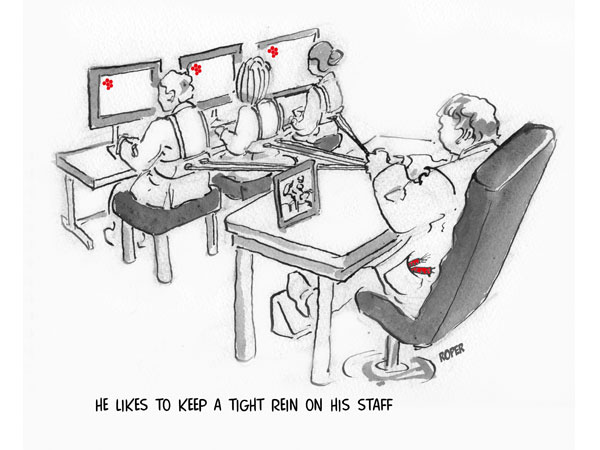The pandemic has caused many people to re-evaluate the sense of meaning and purpose that their work gives them (in the US it’s being called The Great Resignation).
It’s a seismic re-set and hybrid working is here to stay. It’s more important than ever that leaders and managers understand a basic distinction when it comes to the psychology of motivation: The opposite of job satisfaction is not job dissatisfaction. It’s NO job satisfaction.
If you ask people what makes them unhappy at work, they’ll tell you they have an irritating boss, a horrible commute or an IT department that won’t give them what they need.
And environmental factors like these, if managed badly, do make people demotivated and unhappy. But even if managed brilliantly, they still don’t fully engage people and motivate them to work smarter or harder. It may be important, but a functioning printer makes no difference to my job satisfaction.
Consider another example. Imagine for a moment you are choosing a restaurant for dinner. You expect a certain standard of good hygiene (a hygiene rating possibly proudly displayed in the window) but apart from having a confidence that the kitchen is unquestionably clean, what motivates you to go back there? It is (of course) the amazing food, the great atmosphere, and the fact that whoever is ‘front of house’ knows your name.
People are motivated not by ‘hygiene’ factors but by being challenged and having interesting work. They need the opportunity to find their own creative solutions and to have increasing accountability in their roles. These intrinsic desires answer people’s fundamental need for growth, achievement and (particularly important since Covid) meaning through their work.
So how do you provide this? Here are a few pointers:
- Take care of the hygiene factors. They don’t enrich jobs by themselves, but if you ignore them, they remain irritants which will undermine what you’re trying to achieve.
- Ensure that your procedures and processes are running smoothly, and regularly review them to see if and how they can be improved.
- Offer a salary and incentives package that is at least on a par with the competition, if not marginally more attractive.
- If it fits with your company culture, embrace hybrid working (but be wary of offering individuals their personal choice of days; this needs to be a team or organisation decision).
Having paid attention to the hygiene and environmental factors, then pay attention to what is clearly job enrichment rather than job enlargement. You could consider:
- Increasing individuals’ accountability for their own work, having established ‘what best looks like’.
- Giving a person accountability for a complete unit of work (a division, an area whatever). For example, a receptionist becomes wholly accountable for creating a welcoming environment for clients rather than being told to buy flowers, take people’s coats etc.
- Introducing some new and challenging tasks not previously handled.
- Assigning people specialised tasks, to enable them to become experts.
- Developing a coaching culture in your organisation which encourages people to find their own creative solutions, rather than imposing yours. Imposing your ideas ultimately stifles creativity, undermines accountability and dilutes the other person’s job enrichment.
The pandemic has upended our way of working and the full effect of this will play out for many years to come. Right now, people are reviewing what they want and need from their work. To attract and retain talent, and to ensure you can motivate and engage people, it is even more important to pay attention not just to their environment needs but also to their individual job enrichment.
If you’d like to have a chat about how the pandemic has impacted your organisation do get in touch; call us on 07770 221166 (Amanda) or 07801 259637 (Kate).
